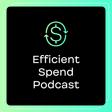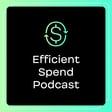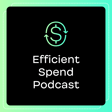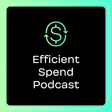
The Paramark Playbook: Scaling Success with Marketing Science | Pranav Piyush
SUBSCRIBE TO LEARN FROM PAID MARKETING EXPERTS 🔔
The Efficient Spend Podcast helps start-ups turn media spend into revenue. Learn how the world's top marketers are managing their media mix to drive growth!
In this episode of the Efficient Spend Podcast, Pranav Piyush, Co-Founder of Paramark, shares his journey from consulting and product management to becoming a founder, with a focus on optimizing media mix and marketing spend. He discusses key lessons from his time at PayPal, Dropbox, and Invoice2go, touching on topics like conversion rate optimization, attribution challenges, and incrementality.
About the Host: Paul is a paid marketing leader with 7+ years of experience optimizing marketing spend at venture-backed startups. He's driven over $100 million in revenue through paid media and is passionate about helping startups deploy marketing dollars to drive growth.
About the Guest: Pranav Piyush is the Co-Founder of Paramark, a leading media mix optimization platform. As an expert in performance marketing and data-driven growth strategies, he has helped companies like Dropbox, PayPal, and Invoice2go scale through innovative experimentation and manage multi-million-dollar marketing budgets.
VISIT OUR WEBSITE: https://www.efficientspend.com/
CONNECT WITH PAUL: https://www.linkedin.com/in/paulkovalski/
CONNECT WITH PRANAV: https://www.linkedin.com/in/pranavp/
EPISODE LINKS:
https://www.groupm.com/about/
https://marketingplatform.google.com/about/search-ads-360/
https://www.google.com/partners/
https://about.rogers.com/?icid=R_COR_JOR_OB4PMA
https://www.marketme.co/
https://themindfulsteward.com/categories/
https://www.healthline.com/nutrition/omega-3-supplement-guide
https://www.healthline.com/nutrition/magnesium-supplements



